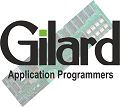Now lets start from the most basic level of implementing ERP. We first need to understand what are the needs to implement ERP. Then server is needed to implement ERP. Free ERP software are many but only few are giving results and those who are using free ERP that ERP becomes another problem for them.
ERP software can improve productivity, increase efficiencies, decrease costs and streamline processes.
Now things you need to do before an ERP implementation are as follows:-
First select the vendor from whom you want to purchase ERP– The ERP vendor whom you are selecting must provide good service. You must have a healthy relationship with the ERP vendor so that you have a smooth ERP implementation process. You must do a lot of research to select the ERP vendor and must choose a vendor which addresses the needs and challenges faced in the industry.
Put it all on the table– The only way to find a perfect vendor is by being honest and open with the vendor as far as possible about the challenges and the requirements of your company. This ultimately will help your business to benefit from the ERP software and helps you make money.
Bring everyone on the same level– Before implementing ERP and before contacting the vendor you must bring all the employees of the company on the same level and bring them to communicate. The success of the enterprise depends on the combined efforts of the executives and the employees.
Manage change- Change management has been the major module of ERP implementations. Implementing an ERP is a big task and that will impact almost every department in the company. Managing this change is critical.
When the Operating system for Manufacturing is working the owner of the business don’t have to worry he can just sit and relax and get to do the operations of the business with minimal efforts. OSM is largest software in the world that helps the company to grow.













